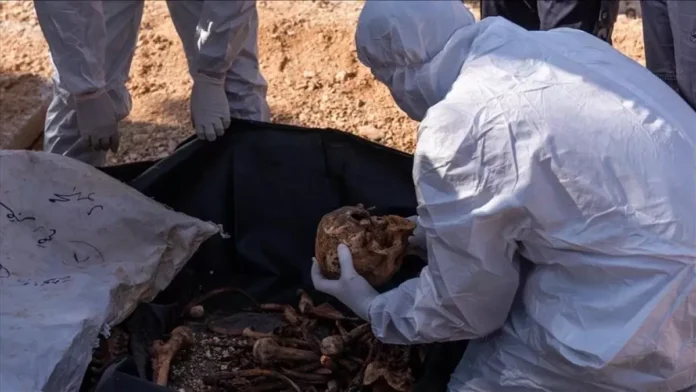A Qatar-led mission in Syria has begun recovering the remains of U.S. hostages killed by ISIL nearly a decade ago.
The Qatar-led mission in Syria launched last Wednesday with support from American nationals who chose to stay anonymous.
This humanitarian operation focuses on locating the remains of Peter Kassig, an American aid worker murdered by ISIL in 2014.
Qatar’s International Search and Rescue Group leads the effort, aiming to bring closure to grieving families.
So far, the team recovered three sets of remains, which await identification.
The Qatar-led mission in Syria also targets the discovery of other hostages, including James Foley and Steven Sotloff.
A Syrian security official confirmed Dabiq as the suspected location of Kassig’s body.
ISIL executed Kassig in Dabiq, a northern Syrian town once held by the terrorist group.
In addition to Kassig, ISIL killed American journalist James Foley and aid worker Kayla Mueller.
While the deaths of Foley and Sotloff were confirmed in 2014, Mueller’s death was verified in 2015.
Foley’s mother, Diane, told Al Jazeera she appreciates anyone risking their life to find the hostages’ remains.
The Qatar-led mission in Syria started shortly before President Trump’s planned visit to the region.
This visit comes as Syria pushes for relief from long-standing U.S. sanctions.
Last month, the UK lifted sanctions on several Syrian ministries, signaling shifting international approaches.
Qatar planned this mission during an April visit to Washington by top Qatari officials.
The delegation met U.S. leaders to discuss cooperation and prepare for Trump’s upcoming Gulf trip.
U.S. forces still operate in northeast Syria, monitoring ISIL activity and supporting recovery efforts.
The remains of Kassig, Foley, and Sotloff are likely in that region, according to U.S. sources.
Kayla Mueller’s case stands apart, as she was held by ISIL leader Abu Bakr al-Baghdadi.
Two former British ISIL members, part of the so-called “Beatles” cell, now serve life sentences in U.S. prisons.
The Qatar-led mission in Syria represents an important step toward justice and reconciliation for victimized families.


